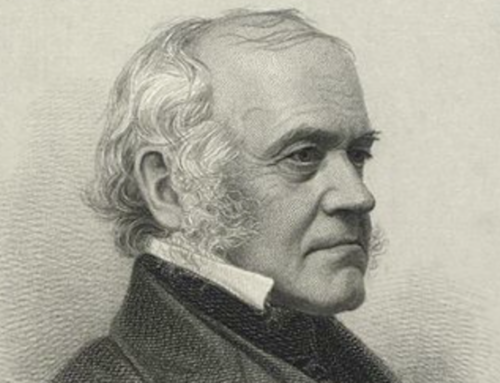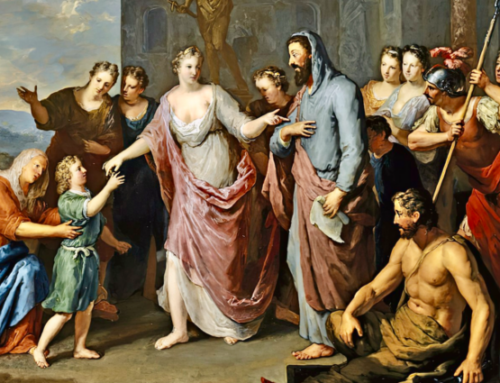In almost every way, social media seems most like some crazy, corrupt thing lurking in Plato’s Cave. But nothing in the free world forces us to be cruel, nasty, hateful, or bigoted to our fellows. We are instead called to proclaim truth, goodness, and beauty.
 There are days, there are days, and, then, there are days.
There are days, there are days, and, then, there are days.
Yes, this is one of those days.
As I scroll through the various social-media outlets, odd manifestations, and relentless creepings, I encounter little more than hatred, bigotry, more hatred, some subtle bigotry, some not-so-subtle bigotry, a bit more hatred, and a massive and incalculable swath of fear and ignorance. Oh, look, she had two abortions; and, oh, wow, that guy is offended by so much “whiteness”; and, over there, an advertisement is kindly letting me know that I can clean up the vein mess of my legs.
Isn’t the modern world a delight?
And, yet, why not the opposite? Why can’t social media be about spreading the Gospel, 280 characters at a time; or about the release of information on how to adopt children from war-torn countries; or why not a Platonic dialogue; or how to get the local homeless person much needed food and shelter; or how to plant better tomatoes, or… Like almost everything technological, social media can be good or bad. Sadly, it seems to have gone the wrong direction in recent years. Much of what has happened with social media reminds me of promises made in the 1950s that television would revolutionize the teaching of children. It did, but not in the ways promised.
Truly, I’m being serious.
Imagine how powerful social media could be. The Iranians or the Chinese are rising up? Given social media, I might well know about the uprising before their local governments do. Can I do much? Well, I can give moral support, offer up prayers, and express my encouragement. Or, what if social media really did promote the great texts, the great ideas, the great thoughts, the great thinkers of our civilization? Instead of “you’re a racist,” why not, “Have you considered that Heraclitus attempted to find the universal in human experience and essence?” Or, what if I did need to get help for someone desperately needy but was unfamiliar with the resources or the laws or the terrain upon which to navigate? Could I not connect almost immediately with local aide and services?
When the World Wide Web began to be publicly embraced, it did seem to live out some of the great predictions of the 1970s and 1980s—remember Megatrends?—that technology would allow almost complete decentralization, moving away from government and corporate controls. With the Internet, everyone, it was argued, could work from home. With the Internet, we didn’t need publishers or record labels as gatekeepers, controlling and distributing art.
It could be done straight from the home computer. Little did we realize that Google and China would become the most massive and aggressive gatekeepers the world had yet seen. Check out the news about China’s social capital network and their credit-rating system. It makes 1984 look downright balmy and comfortable.
And, of course, if Google or China have somehow overlooked you, you can always rely upon some serious mob pressure to keep you in check. This is where the hate and bigotry really kicks in. Never have I seen a mob come together so quickly and so virulently as a twitter mob. Twitter conversations prove almost everything Alexis de Tocqueville feared about “democratic despotism”—especially in establishing a million niggling rules that prevent us from thinking rather than actually telling us what we can or cannot think. It wasn’t just Tocqueville, either. In the 1940s and 1950s, every sensible person, left or right, from C. Wright Mills to Robert Nisbet, feared the unthinking Mass of men in a democracy.
Ok, let me cut back on the sarcasm and my own anger about all of this. Nothing I’ve written above is untrue, but it is extremely unflattering and rather one-sided.
In almost every way, social media seems most like some crazy, corrupt thing lurking in Plato’s Cave. Social media isn’t reality, but it is reflective of reality, a shadow, or a shadow of a shadow. There are many bright lights, all moving in the darkness, and they become, for most people, reality.
Here’s the critical part of Plato’s allegory, though: It’s not enough to climb out of the cave and reach for the sun and that which lights the sun. We must go back into the cave and let the people trapped there know and understand that there is reality and light and goodness and truth and beauty behind their wildest imaginings. Socrates, of course, had discovered all of this, and the crowds back in the cave voted for him to take poison for his goodness. And, we’re back to the twitter mob… but armed with votes and hemlock.
Above, I cited possibilities of what social media could be. The fun thing is, it’s entirely up to us. If we want to use social media to bash one another, we can. If we want to tweet every single line from the Aeneid, we can do that, too. If we want to get suggestions on local aide and resources for the needy, we can do that, too. If we want to let our friends know about the latest essay on The Imaginative Conservative (twice a day!), we can do that, too. If we want to share pictures of children, laughter, landscapes, and beauty, we can do that, too. If we want to embrace the Great Commission and spread the Gospel to a sick world, we can do that, too. And, if we are not well received, we can just shake the data off our feet as we exit town.
Nothing in the free world forces us to be cruel, nasty, hateful, or bigoted to our fellows. As with all things in this world, we are not called to go into our holes and wait for it to be all over. We are called to proclaim truth, goodness, and beauty. For some of us, that means speaking up at the local PTA. For others, that means reaching over our fence to talk with our neighbor. And, for everyone reading this, it means being sincere, loving, and encouraging on Facebook, Twitter, Instagram, WordPress….
Make this one of those days, not one of those days.
The Imaginative Conservative applies the principle of appreciation to the discussion of culture and politics—we approach dialogue with magnanimity rather than with mere civility. Will you help us remain a refreshing oasis in the increasingly contentious arena of modern discourse? Please consider donating now.
Editor’s Note: The featured image is “The Allegory of Immortality” by Giulio Romano, c. 1540, courtesy of Wikipedia.







I don’t have an answer to the question you pose, except to acknowledge its importance and thank you for asking it. Its exceptionally important to set a good example when using social media. One good example can offset 1000 bad examples, because human nature is such that people will instinctively be inclined to follow a good example. So don’t get angry, but keep faith! The only way to overcome darkness is with light.
What about abstaining altogether? Does scrolling a social media feed often (ever?) leave one feeling nouished, encouraged, fortified, edified, grateful for the time spent? Does it encourage one to think good or ill of one’s “friends”? Does it encourage genuineness, authenticy, true self-knowledge? It seems mostly a narcissistic hall of black mirrors, deceptive virtue signalling, a comparative narcotic mixed with pride, competition, envy, and hate. Of course one might be hopeful social media might be used for goodness, truth, and beauty, but how many can say most of their experiences of it fall an that side of the ledger rather than the darker side? And if a thing is so readily twisted toward a certain use and affect, when does wisdom dictate it be used sparingly, if at all? I am playing devil’s advocate here because this seems to be a perspective or response not seriously considered by the author, a man whom I greatly respect. The assumption seems to be that we will (must, should?) use social media, so let’s try to make it a more positive means of communication.
Excellent essay. Thank you so much for sharing. The idea of watching shadows on the wall as I scroll through my Facebook has tickled me on more than one occasion. You’re right though. I plan to accept your challenge to promote the good, true, and beautiful more on my social media. Thanks, again.